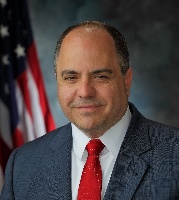Geneseo Felony Lawyer, New York
Sponsored Law Firm
-
 x
x

Click For More Info:
-
Cohen & Bernstein, L.L.C.
1360 Clifton Ave #309 Clifton, NJ 07012» view mapCriminal Defense We’re In this Together!
We work hand in hand with our clients to ensure all of your questions are answered and progress through your legal issue is seamless.
800-978-7341
Not enough matches for Geneseo Felony lawyer.
Below are all Geneseo Criminal lawyers.
Raymond Paul Sciarrino
✓ VERIFIED *Status is reviewed annually. For latest information visit hereCriminal, Real Estate, Accident & Injury
Licensed: 22 Years
Sciarrino & Sciarrino, P.C. is a criminal law firm serving Rochester and the surrounding areas of Livingston County and Wyoming County. For more than ... (more)
Michael William Stivers
Landlord-Tenant, Divorce, Criminal, Car Accident, DUI-DWI
Status: In Good Standing *Status is reviewed annually. For latest information visit here
Marcea Clark Tetamore
Real Estate, Divorce & Family Law, Criminal, Bankruptcy & Debt
Status: In Good Standing *Status is reviewed annually. For latest information visit here Licensed: 34 Years
 Lindsay Bernstein Clifton, NJ
Lindsay Bernstein Clifton, NJ Practice AreasExpertise
Practice AreasExpertise
